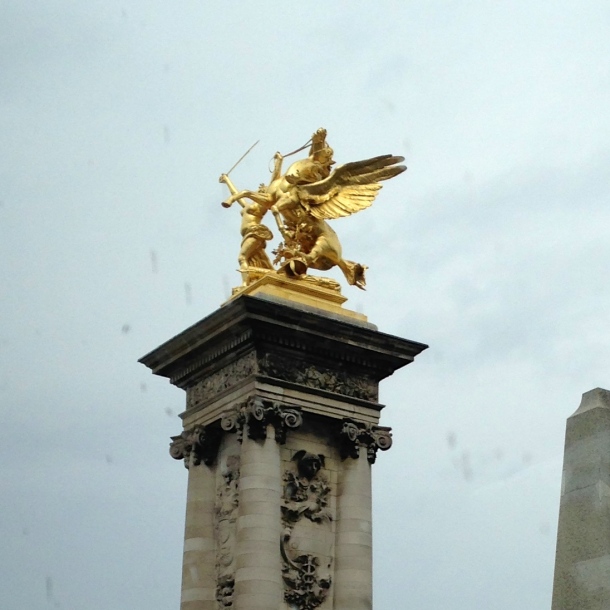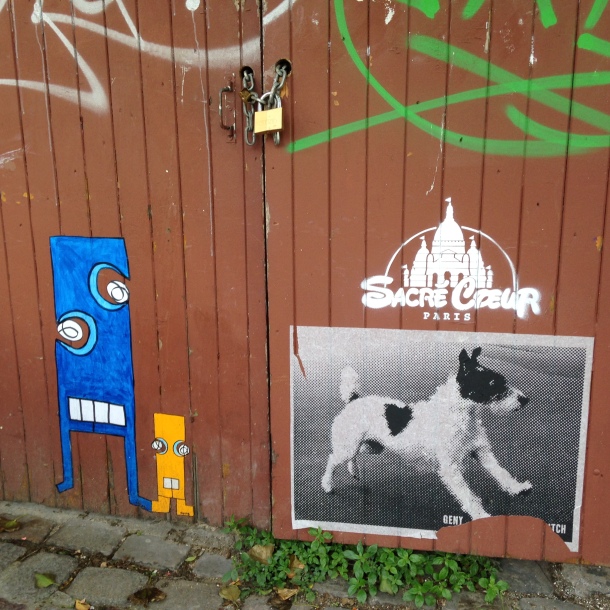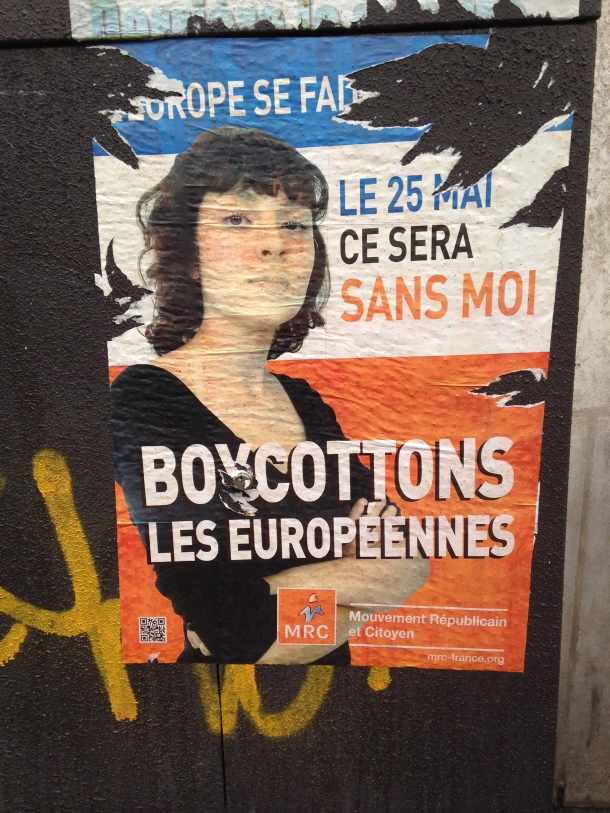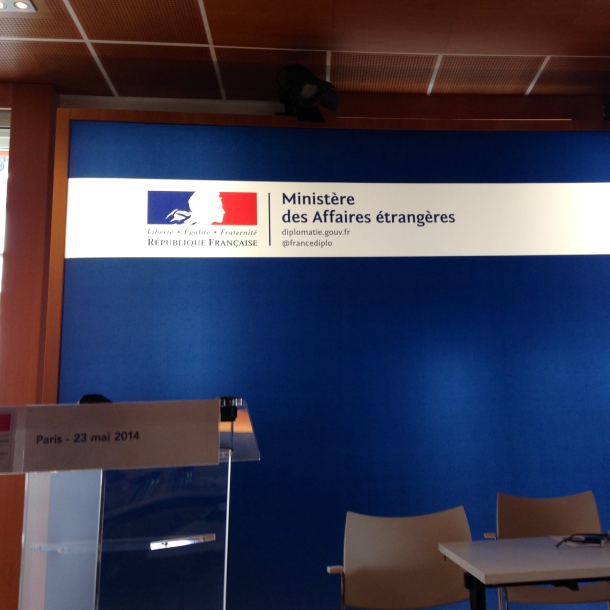Flying into Paris on the eve of a national election makes for an interesting and perhaps more unguarded view of the French point of view. Think about how you feel, wherever you may live, when the outcome of a political election publicly reveals the extent of a problem you (the royal “you”) have been unwilling to face. Does the whole world now know that my state/city/community is crazy/fascist/perpetrators of inequity? Perhaps it doesn’t go so far or become so drastic for you. But loss creates a physical effect. Your heart sinks and you worry about how that makes you look. After all, you live here. Does that mean you are like that very thing that a majority of your fellow citizens said they wanted?
Of course you’re not.
Also, it’s not that simple.
Paris, 25 May 2014. It’s the national election. It’s a Sunday. My American brain thinks: election on a Sunday. Hmmm, that wouldn’t fly.
We are in Paris, in the neighborhoods around the Seine, and it is beautiful. The light is slightly diffused, even when the sun is bright. This casts everything in a flattering light. There you find stately boulevards, the green spaces, the current of the river, the steady stream of taxis and cars making sleek turns. It’s so very easy to see why this city has a reputation for elegance. Paris is elegant. And nuts. Also, very cool.
It’s easy to slip into Paris and concoct a fantasy about life that consists of long walks, late night café conversations, or even two lovers on an empty street in the rain sharing an umbrella, and of course, with a crusty baguette tucked under the arm. Not all at once, but you get the picture. Paris is full of delights that encompass all the senses.
See how easily I created a stereotypical view of Paris? It’s the one we know by heart. Our cultural handbook says: Paris = awesome.
It’s much harder for me, then, to grasp that this city in a state of beauty and culture has an ugly problem that is surfacing in a very public way through the latest European Parliament elections.
I was troubled to learn – and to find proof – that more than 35 percent of French people admit they are racist. The person who shared that tidbit also said: remember, this is who admitted it. We know that many people wouldn’t.
Fact: the far right National Front party won 25 percent of the French vote that determined number of seats for that party in the European Parliament. And in the Paris suburb of Clichy-sous-Bois, one of the least economically vibrant and most segregated and also isolated by lack of access to the Paris transportation grid, 20 percent of the voters voted for the National Front, according to a knowledgeable source. And yet there are at least 74 nationalities living in Clichy-sous-Bois, many or most of these are people who are not white. I also read that most of the residents don’t vote. Either because they don’t know how to participate, they don’t want to participate or because they believe it won’t make a difference. It’s hard to know. After all, France doesn’t keep records or data on ethnic groups.
It’s all complicated and very hard to understand, so I won’t pretend to. The French have a problem with racism. So does the United States. The essential difference is that the United States is not in denial, as France is. I’ve learned that intercultural competency is not a dichotomous proposition. You aren’t all one thing or another when it comes to cultural understanding. You exist along a continuum. My hope is that there will be willingness for France to make that very hard but necessary journey from denial to acceptance. The country could then better live up to its credo of egalité.





